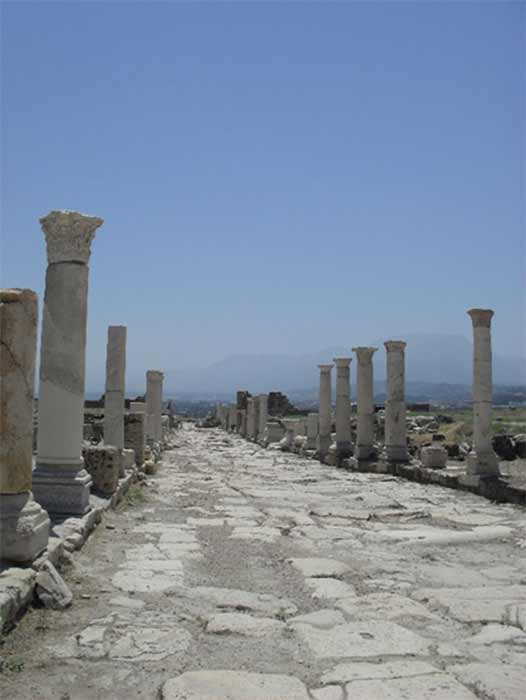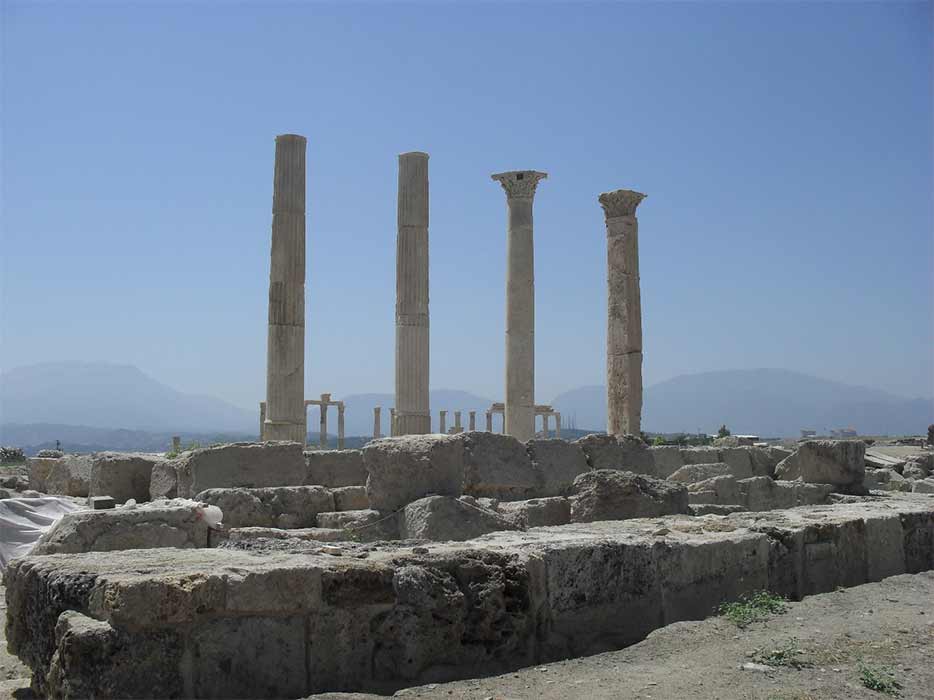
Lives And Losses Of Laodicea, Crown Of Phrygia
In the west central part of ancient Phrygia in Anatolia, Turkey, the ruins of Laodicea crown the hill between the narrow valleys of the Asopus and Caprus rivers, converging into the Lycus river. Although the fertile plains of the Lycus river was inhabited since 5500 BC, it was during the mid-third century BC, (261-253 BC) that the Seleucid King Antiochus II founded the city in honor of his wife, Laodice, herself a noble woman. However, the honor of Laodicea was tainted by politics, betrayal and murder.
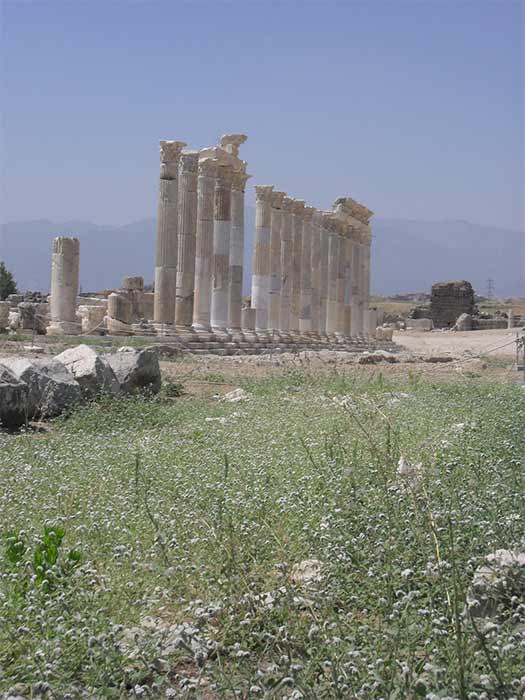
Ruins of Laodicea in the Spring (Image © Micki Pistorius)
Named For Queen Laodice
The story begins a century earlier, upon the death of Alexander the Great, during the Partition of Triparadisus in 321 BC when the Diadochi or Generals of Alexander, agreed to divide his empire among them. Seleucus I Nicator (the Victorious), one of the original Macedonian generals, was awarded the satrap of Babylon under Antipater. However, it did not take Seleucus long to establish himself as basileus (king), founder of the Seleucid Empire, ruling over Asia Minor, Syria, Mesopotamia, and the Iranian Plateau. King Seleucus was married to Apama, daughter of Spitamenes, one of the princesses whom Alexander the Great had given as wives to his generals in 324 BC.
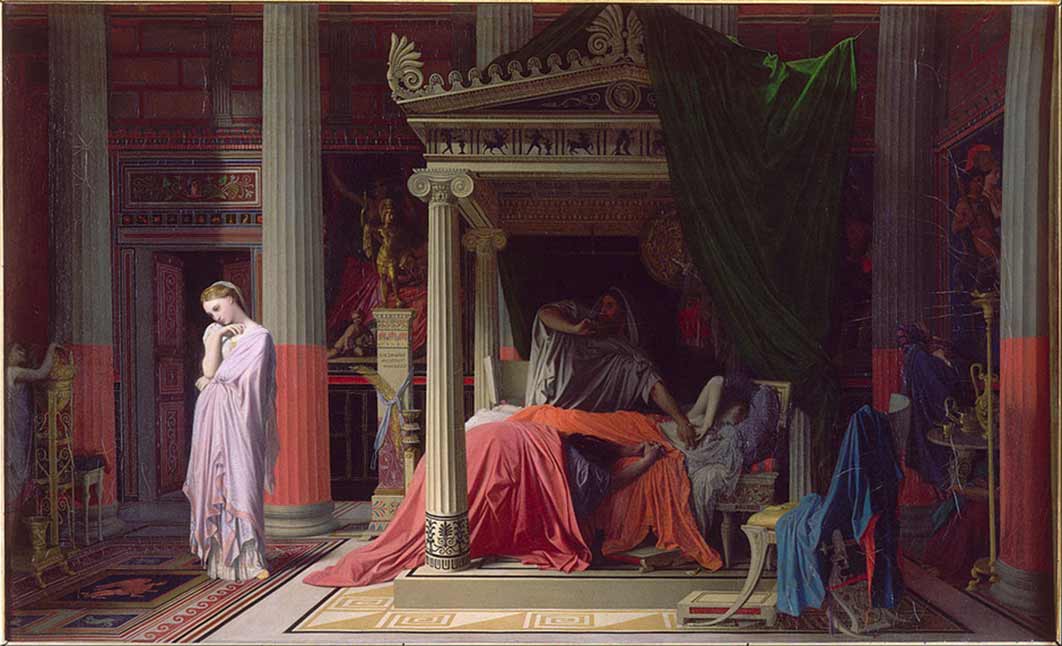
The Lovesickness of Antiochus or Antiochus and Stratonice by Jean-Auguste-Dominique (1840) Public Domain
They had a son, Antiochus Soter I, who fell in love with and upon his father’s death, married one of his father’s other wives – his stepmother Stratonice. She bore him five children, the two sons being Seleucus, and Antiochus II Theos, who succeeded his father as king, after the first born Seleucus was executed for rebellion.
- The Rise and Demise of the Seleucid Empire
- Where Greek Meets Indian: Sirkap, an Ancient City in Pakistan
- First Excavations at 2,300-Year-Old Bactria Kingdom Fortress Completed
Antiochus II Theos married his niece, Laodice, daughter of Achaeus, the second son of King Seleucus I Nicator and his first wife, Apama I. When Antiochus I Soter died in 261 BC, Antiochus II succeeded his father and so Laodice became the Seleucid queen. It was during this time that Antiochus II established Laodicea in her honor. She bore Antiochus two sons, whom she eventually pitted against each other, resulting in a civil war.
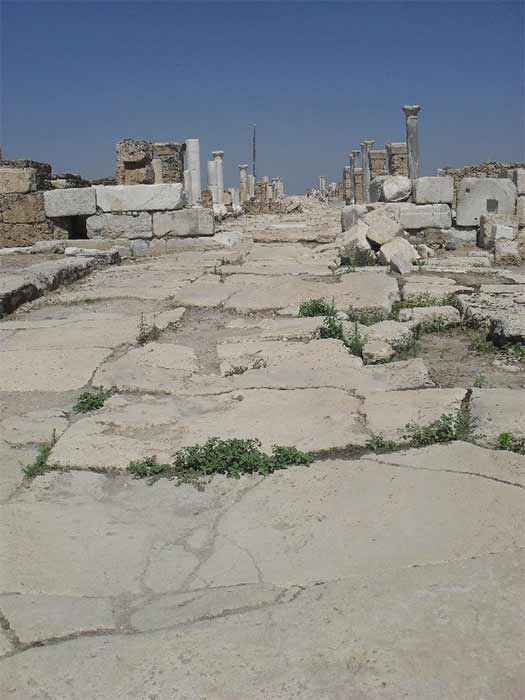
View up and down the paved and colonnaded Syria street (Images © Micki Pistorius)




